facilitator training, tools, and business plan
Facilitating Migrant Entrepreneurship
Supporting refugee entrepreneurs to extend their network and tell their Business Story
The third and last multiplier event was organised from Italy, as an international event on Tuesday the 27th of June 2023. The conference was organized by CReA ETS instead of the Sapienza University of Rome. The conference had more than 50 participants.
The aims for the event were:
- To present the total work done in Mastering 9 Conversations
- To learn from the supporting organisations in Agriturismo La Meridiana, Lanuvo (Rome)
- To learn from Italian migrants that have started their own business.
- To have feedback of what we are doing
- To establish contact for further collaboration
The target groups of the event were:
- Italian and European authorities
- Support organisations for migrants/ refugees
- The project team
The event was divided into several parts:
- Welcome by Paola Berbeglia, president of CReA ETS and CONCORD Italy
- An overall presentation of the project
- Presentation of the total M9C programme (IO-1 to IO-6)
- A Round table discussion – sharing experience of inclusion and integration
CReA ETS organized the third Multiplier Event in Lanuvio (Rome)

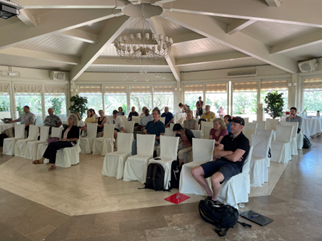
Paola Berbeglia, manager of the CReA ETS, organized and opened the Multiplier Event in Lanuvo in Rome.
Project presentations
Thorleif Hjeltnes, the project manager, from the research foundation TISIP, gave a short introduction of the aims and the tasks in the Mastering 9 Conversation project.
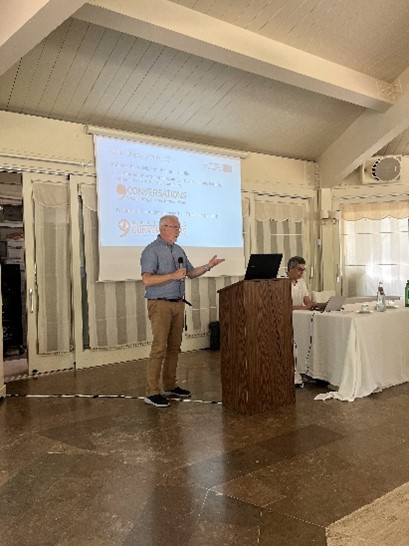
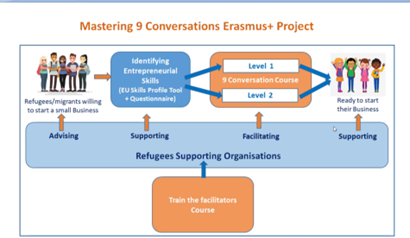
The slide (created by Demostenes Stamitis) shows how the different parts of the project are linked together, both to assist immigrants to become entrepreneurs, but also the important role of the Refugee Supporting Organisations (RSO), and how they can be trained to act as entrepreneurship facilitators for the refugees.
During the multiplier event, a short interview with some of the project members was recorded and the video is available below.
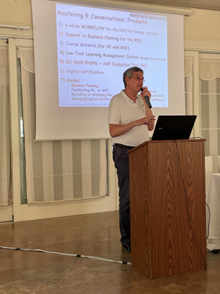
Marco Temperini from Sapienza University of Rome, presented the Framework of the M9C project with emphasis on the workflow for the RSO’s and all the tools and handbooks that will be available.
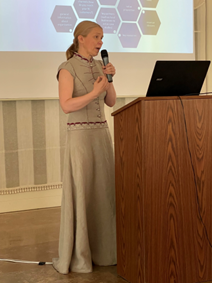
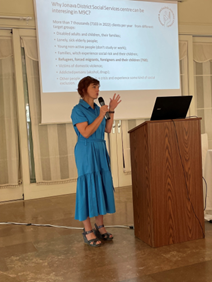
Julita Pigulevičienė from Social Project Institute, has worked closely together with Valentina Demidenko from Jonava Social Service Center, a Refugee Supporting Organisation, to develop a business plan framework for RSO’s. The Jonava Social Service Center have already assisted many refugees in becoming entrepreneurs and see the usefulness of the M9C framework.
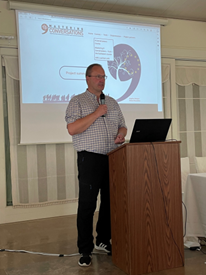
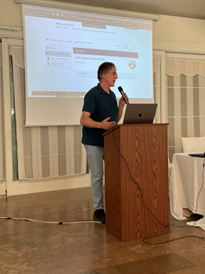
Bjørn Klefstad from NTNU presented the Low tech LMS to be used in the project. The Low tech LMS is build upon free of charge software that can be easily installed and used by RSO’s that want to run both the 9C course as well as the M9C course. This is important for giving the RSO control over their GDPR issues as well as for reducing the costs for running the courses. Andrea Sterbini from Sapienza University of Rome presented different technologies that are avaliable and can be used to produce unique and trustworthy certificates from RSO’s to course participants taking the 9C course.
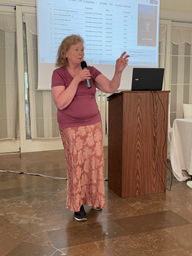
Anne Fox showed the first part of the Train the Facilitator course that introduces participants to what it takes to give the 9 Conversations course, and how people from the Refugee Support Organisations will learn how to set up and give the course, and what template and handbooks that are available.
Lunch
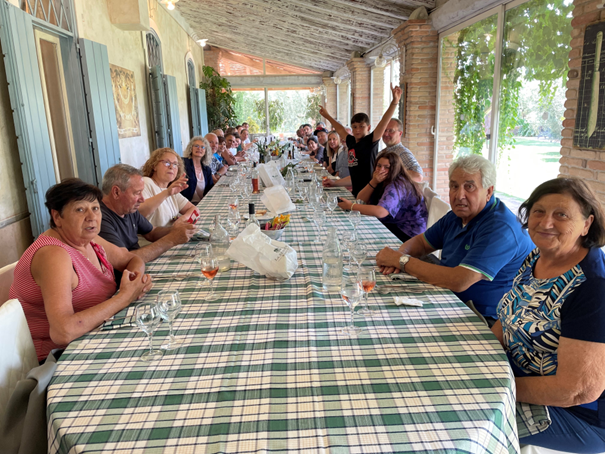
La Meridiana Resort (www.resortlameridiana.it) is a farm in Lanuvio that offers local food, vegetables and wine procuced at the farm. The farm is based on Agriturismo and offers different services to their guests. The farm collaborates with CReA in helping refugees. All the participants were invited to enjoy a very nice lunch.
Round table – sharing experiences of inclusion and integration
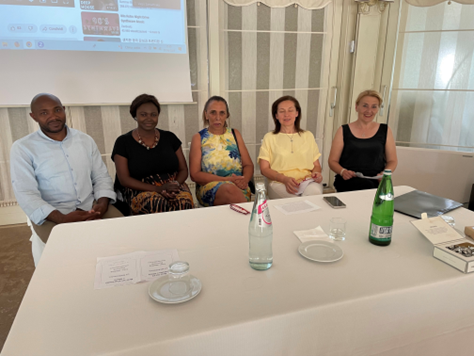
Halyna Hrabinska and Lyubov Mandzyac
In the afternoon session CReA invited some refugees to share their experiences of inclusion and integration. From left to right, Gaston Biwole, art director and founder of diaspora association “Ankafrikindi”. Belkissa Maiga, Head of Female Emancipation Department at Youth for Change Mali, Fouzia Sounni, Cultural Madiatior, Halyna Hrabinska, engineer, social assistant, Ucraine CreAttiva Association and Lyubov Mandzyac, engineer and cultural mediator. The conference was chaired by Paola Berbeglia.
The session gave the project a lot of feedback on different kinds of cultural and practical obstacles for newcomers from both Africa as well as UKraine when they wanted to establish a new life in Italy.
Language
The working language for the ME3 conference was English. However, many of the participants were unable to understand other languages than Italian (often as their second language). To overcome this challenge CReA hired an English – Italian translator.
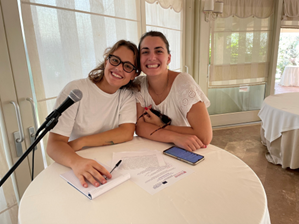
Arianna Berbeglia (left) did an impressive job to translate all English to Italian and vice versa. Here together with her sister Aurora Berbeglia, who also took part in the conference.
Under the family tree
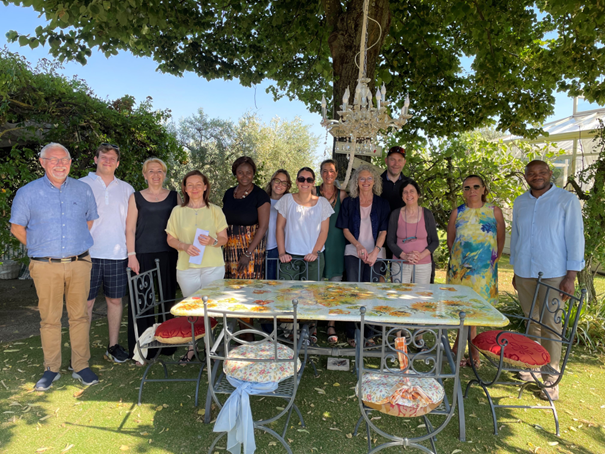
The father of Ilaria Signoriello, standing next to the tree, worked at the farm and planted the tree. Due to her and all the others involved from CReA, the Multiplier Event became a great success, and we learned a lot while enjoying great Italian hospitality.
